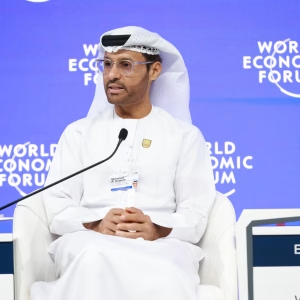Blockchain in Dubai Smart Homes Transforms Property Management
Blockchain in Dubai smart homes is revolutionising how properties are managed, bought, and sold. By integrating blockchain technology into residential communities, Dubai is enhancing transparency, security, and efficiency in the real estate sector. Smart homes equipped with blockchain-based systems allow residents and developers to automate contracts, track property transactions, and streamline payments. This technology reduces the need for intermediaries, cutting costs and delays while providing a safer and more reliable experience for homeowners and investors alike.
How Blockchain Enhances Smart Home Technology
Blockchain technology complements smart home systems by offering secure, decentralised data management. Connected devices, from lighting and climate control to security cameras and energy systems, can operate seamlessly while recording actions on an immutable ledger. This ensures that all data is transparent and tamper-proof. Residents can monitor energy consumption, automate routines, and even manage access permissions with confidence, knowing their information is protected. The combination of smart home automation and blockchain creates a modern, intelligent living environment that prioritises convenience and security.
Impact on Real Estate Transactions
The integration of blockchain in Dubai smart homes is transforming real estate transactions. Property buyers and investors can benefit from smart contracts that automate payment schedules, ownership transfers, and legal documentation. Blockchain reduces paperwork and human error, speeding up the buying process. It also enhances transparency, allowing buyers to verify property history, previous transactions, and legal compliance easily. As a result, investors feel more confident entering the Dubai market, while developers can attract a tech-savvy audience seeking secure, innovative homes.

Security and Privacy Benefits
Security is a key advantage of using blockchain in smart homes. With decentralised data storage, personal information and home automation data are safeguarded from hacking or tampering. Residents can grant and revoke access permissions remotely, monitor security cameras in real-time, and receive instant alerts for unusual activity. Blockchain ensures that every transaction and device activity is securely recorded, offering peace of mind and enhancing trust between residents, property managers, and service providers.
Financial Efficiency and Cost Savings
Blockchain in Dubai smart homes also improves financial efficiency. By automating rent collection, utility payments, and property maintenance schedules, the technology reduces administrative overhead and potential delays. Smart contracts handle recurring payments accurately, eliminating the risk of missed deadlines or disputes. For property developers and landlords, this means streamlined operations, reduced costs, and a more attractive proposition for tenants and buyers seeking modern, hassle-free living experiences.

Integration with IoT Devices
Dubai’s smart homes increasingly rely on Internet of Things (IoT) devices, and blockchain enhances the functionality of these systems. Connected thermostats, smart lighting, energy meters, and security sensors can all operate within a blockchain framework, ensuring data integrity and seamless communication between devices. This integration allows residents to optimise energy usage, improve sustainability, and maintain complete control over home systems, all while benefiting from an additional layer of security and accountability.
Attracting Tech-Savvy Investors
The adoption of blockchain technology in Dubai smart homes has attracted tech-savvy investors and early adopters. Many buyers are drawn to properties that combine luxury, convenience, and technological innovation. Blockchain ensures transparent property records, automated processes, and enhanced security, making smart homes highly desirable in the competitive Dubai real estate market. The market’s innovation-driven approach is positioning Dubai as a global leader in futuristic living solutions.
Government Support and Smart City Initiatives
Dubai’s government has actively supported the integration of blockchain into real estate and smart homes through various initiatives. Programs focused on smart city development, digital governance, and innovation incentives encourage developers to implement blockchain solutions. These initiatives enhance operational efficiency, promote sustainability, and increase transparency for residents and investors. Dubai’s vision for a fully connected, technology-driven urban environment aligns perfectly with the adoption of blockchain in smart homes.
Energy Management and Sustainability
Blockchain technology in smart homes also improves energy management and sustainability. By monitoring consumption patterns through blockchain-secured IoT devices, residents can optimise energy use and reduce waste. Automated billing and tracking systems reward energy-efficient practices and allow homeowners to participate in green initiatives. This combination of technology and sustainability benefits both the environment and residents’ utility costs, reflecting Dubai’s commitment to eco-friendly urban living.
Enhancing Rental and Leasing Processes
The rental and leasing process is another area transformed by blockchain in Dubai smart homes. Smart contracts automate lease agreements, rental payments, and security deposit management, ensuring transparency and reducing disputes. Tenants and landlords benefit from faster, more secure transactions, while property managers gain real-time insights into occupancy, payment schedules, and property maintenance. This efficiency creates a more attractive rental market and encourages long-term investment in Dubai properties.
Future of Blockchain in Real Estate
The future of blockchain in Dubai smart homes looks promising, with potential expansion across commercial properties and mixed-use developments. Developers are exploring new ways to integrate blockchain with urban planning, energy management, and resident services. As adoption grows, residents will experience more seamless interactions, automated services, and enhanced security across the property ecosystem. Dubai’s leadership in this space sets a benchmark for global real estate innovation.
Smart Contracts Simplify Legal Processes
Smart contracts powered by blockchain streamline legal processes associated with property ownership. Traditional challenges such as paperwork, manual verification, and lengthy approvals are minimized. Contracts execute automatically when predefined conditions are met, ensuring timely transfers and compliance. This reduces legal risk and fosters trust between buyers, sellers, and developers. By simplifying these processes, blockchain makes property transactions faster, safer, and more transparent.
Enhancing Property Valuation and Investment Analysis
Blockchain also assists in accurate property valuation and investment analysis. Historical data on transactions, maintenance, and occupancy can be securely stored on the blockchain, allowing buyers and investors to make informed decisions. Transparency and data integrity enhance market efficiency, attract serious investors, and reduce speculative risks. Investors can confidently evaluate opportunities, knowing that blockchain provides reliable, tamper-proof information.
Community Benefits and Smart Living
Beyond individual homes, blockchain technology benefits entire communities. Shared facilities, security, and communal energy management can be optimised using blockchain, providing residents with a coordinated, efficient living experience. Smart communities in Dubai are adopting blockchain for shared amenities, parking, and even voting on local initiatives, creating a more connected and engaged residential environment.
Challenges and Considerations
While blockchain offers numerous advantages, there are challenges to consider. Integration with existing infrastructure, regulatory compliance, and initial implementation costs require careful planning. Developers must ensure that residents are educated about the technology and its benefits. Despite these challenges, the long-term value of blockchain in enhancing efficiency, security, and investment confidence outweighs the initial hurdles.
Case Studies of Blockchain Smart Homes in Dubai
Several Dubai developments have successfully integrated blockchain technology into their smart homes. From automated contract execution to IoT-based energy management, these projects demonstrate practical applications of blockchain that enhance resident experience. Positive feedback from residents and investors highlights the growing demand for innovative, tech-driven living spaces. These case studies serve as models for future smart home projects in Dubai and beyond.

Global Implications and Leadership
Dubai’s adoption of blockchain in smart homes positions the city as a global leader in real estate innovation. The successful integration of technology with residential and community management sets an example for other cities seeking to modernise property markets. By demonstrating tangible benefits for residents, developers, and investors, Dubai continues to lead in creating futuristic, efficient, and sustainable urban living environments.
Conclusion: Blockchain Shapes the Future of Smart Homes
Blockchain in Dubai smart homes is transforming the way residents interact with their properties, manage transactions, and engage with their communities. Enhanced security, transparent processes, energy efficiency, and smart automation make these homes highly attractive to investors and residents alike. Dubai’s commitment to technology-driven innovation ensures that smart homes powered by blockchain will remain at the forefront of global real estate trends, shaping the future of urban living while delivering convenience, efficiency, and peace of mind.
Do follow UAE Stories on Instagram
Read More: Biggest Gym in Dubai: Inside the City’s Ultimate Fitness Hub














